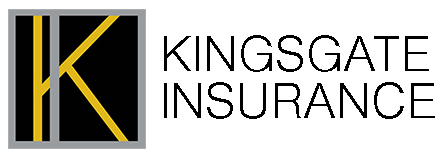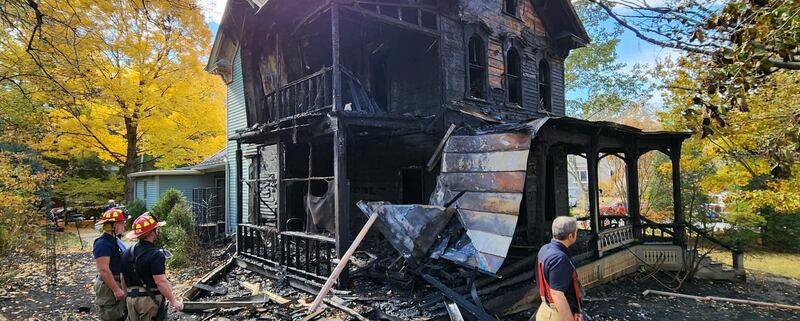The Role of Insurance in Fire Damage Recovery: How to Rebuild After a Fire
A house fire is one of the most devastating events a homeowner can face. The emotional toll of losing belongings, and perhaps even part of your home, can be overwhelming. But amidst the ashes, there is hope—and that hope often begins with a well-constructed insurance policy. Having the right insurance coverage in place can be the key to rebuilding your life after a fire. In this blog, we’ll explore how insurance plays a vital role in fire damage recovery and why it’s essential to ensure your coverage is up to date and sufficient for your needs.
The Immediate Aftermath of a Fire
After a fire has been contained, you may find yourself facing a long list of urgent concerns. Aside from the emotional stress, there is the immediate need for a safe place to stay, replacing essential belongings, and assessing the structural damage to your home. This is where your homeowners or renters insurance comes into play.
Your insurance policy is designed to cover more than just the structural damage to your home. It can also help with:
- Temporary housing: Many insurance policies include additional living expenses (ALE) coverage, which helps pay for temporary housing, meals, and other day-to-day living costs if your home is uninhabitable after a fire.
- Personal belongings: Your belongings—such as furniture, clothing, and electronics—can also be covered under the contents portion of your policy, allowing you to replace items lost in the fire.
Assessing the Damage: Insurance Adjusters and Documentation
Once you’re safe and your immediate needs are addressed, your insurance company will send an adjuster to assess the damage. This process is critical, as the adjuster’s report will determine how much you’ll receive from your policy to rebuild your home and replace lost belongings.
It’s a good idea to have an inventory of your possessions on hand—ideally before a fire occurs. Documenting your personal belongings, either through a written list or a video walkthrough, can help speed up the claims process and ensure you receive appropriate compensation.
Rebuilding and Repair: What Does Insurance Cover?
Your homeowners insurance policy typically covers two main areas after a fire: the structure of your home and your personal belongings.
- Structural Damage
The dwelling coverage in your homeowners policy covers the cost to repair or rebuild your home’s physical structure. However, it’s crucial to ensure that your policy limits are sufficient to cover the full cost of rebuilding. Rising construction costs or older homes with unique architectural features may require additional coverage. - Personal Property
The personal property section of your policy helps cover the cost of replacing your damaged belongings. While some policies offer actual cash value (ACV) reimbursement—which accounts for depreciation—others may offer replacement cost value (RCV), which provides the amount needed to replace items with new equivalents.
Specialty Coverage for Unique Needs
While a standard homeowners or renters policy covers most fire-related damages, there are a few specific areas where you may need additional coverage:
- Valuable Personal Property: High-value items like jewelry, artwork, and collectibles may need to be scheduled individually on your policy or covered under a separate endorsement.
- Landscaping and Detached Structures: Some policies cover damage to trees, fences, or other landscaping, as well as detached structures like garages or sheds, but only up to a certain limit. Review your policy to ensure these features are adequately covered.
- Code Upgrade Coverage: If your home needs to be rebuilt to meet current building codes, code upgrade coverage can help pay the additional costs that standard insurance may not cover.
Why Regular Policy Reviews Are Crucial
Fire damage recovery is challenging enough without discovering that your insurance policy doesn’t provide the coverage you need. That’s why regular policy reviews with your insurance agent are essential. Home renovations, new purchases, or changes in your area’s building costs can impact your insurance needs, and updating your coverage ensures that you’re fully protected in case of a fire.
Tips for Being Prepared
While no one wants to imagine a fire happening to them, being prepared can make a world of difference. Here are some steps you can take to minimize loss and make recovery easier:
- Create a home inventory: Document your belongings, and store this list in a secure, off-site location.
- Review your insurance policy annually: Ensure your coverage limits are appropriate for your home’s current value and any possessions you’ve acquired.
- Install fire alarms and sprinklers: Many insurance companies offer discounts for homes with these safety features in place.
- Consider additional coverage: Discuss with your agent whether you need specialized coverage for high-value items, code upgrades, or landscaping.
Conclusion: A Vital Safety Net in Uncertain Times
Fires are unpredictable, but insurance offers a vital safety net in uncertain times. With the right coverage in place, you can focus on healing and rebuilding, knowing that your financial burdens are largely covered. Whether you’re assessing your current coverage or starting fresh after a fire, working closely with your insurance agent ensures that you have the protection you need to recover and rebuild.
At Kingsgate Insurance, we’re here to guide you through the process. Contact us today to review your policy and make sure you’re fully protected against the unexpected.







Leave a Reply
Want to join the discussion?Feel free to contribute!